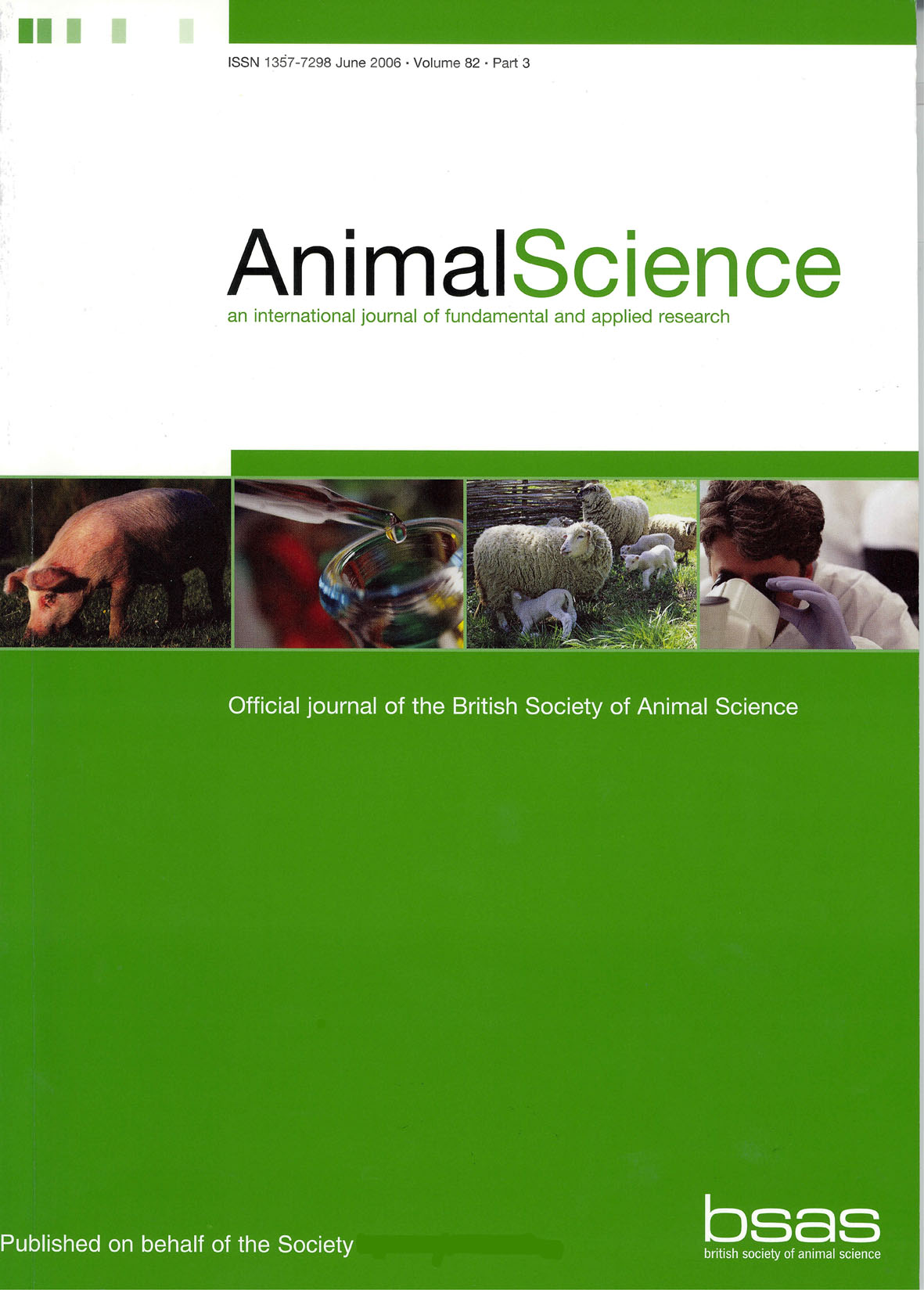Article contents
Protein levels in diets for European pigs in the tropics. 2. The effect of lysine and methionine supplementation on the protein requirement of growing pigs
Published online by Cambridge University Press: 02 September 2010
Summary
One hundred and twenty-eight Landrace and Large White pigs were allocated on the basis of sex, litter origin and initial weight to one of 16 treatments made up of four basal 16, 18, 20 and 22% protein diets, each supplemented with either 0·00,0·05,0·10 or 0·15% synthetic L-lysine; methionine was added to meet the levels earlier found to be optimal. All diets had a common energy level of 3740 kcal/kg DE and pigs were fed from 8 to 50 kg live weight.
Growth rate and feed efficiency improved as the protein levels were increased from 16 up to 20%. Only the 16 and 18% protein diets showed significant responses to additional lysine. Best overall gains and efficiency of gain was achieved on the diet with 20% protein and total dietary lysine and methionine+cystine levels of 1·17 and 0·66% respectively. Carcass leanness increased and fatness decreased as protein and lysine levels were increased, being best at the highest level (1·41%) of lysine studied.
Nitrogen retention indicated slightly lower protein and lysine requirement, efficiency of utilization being best on the 18% protein diet with added 0·15% lysine, giving a total dietary lysine level of 1·1% at the equalized methionine and cystine level of 0·66%.
It is indicated that diets providing between 18 and 20% protein in the diet, provided proper amino acid balance is maintained, would be optimal for pigs between 8 and 50 kg live weight.
- Type
- Research Article
- Information
- Copyright
- Copyright © British Society of Animal Science 1975
References
REFERENCES
- 10
- Cited by


